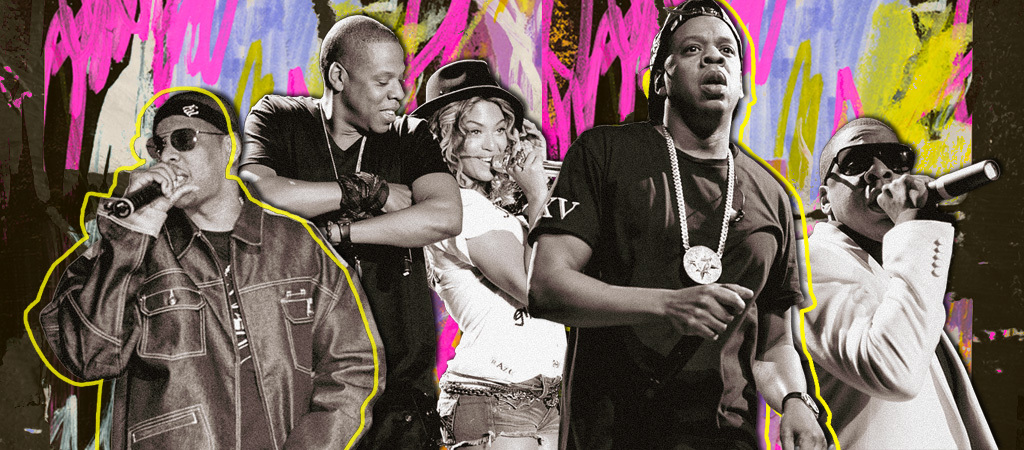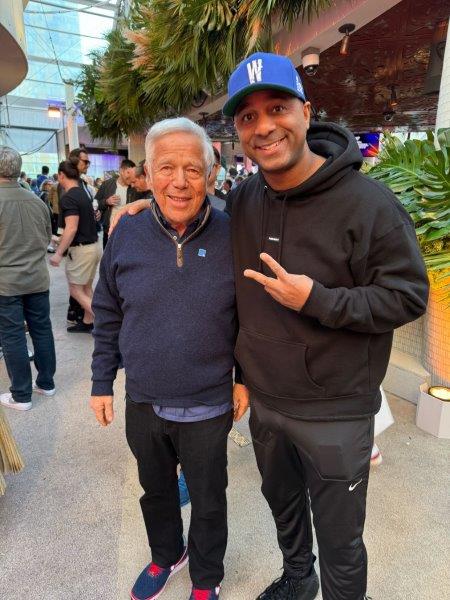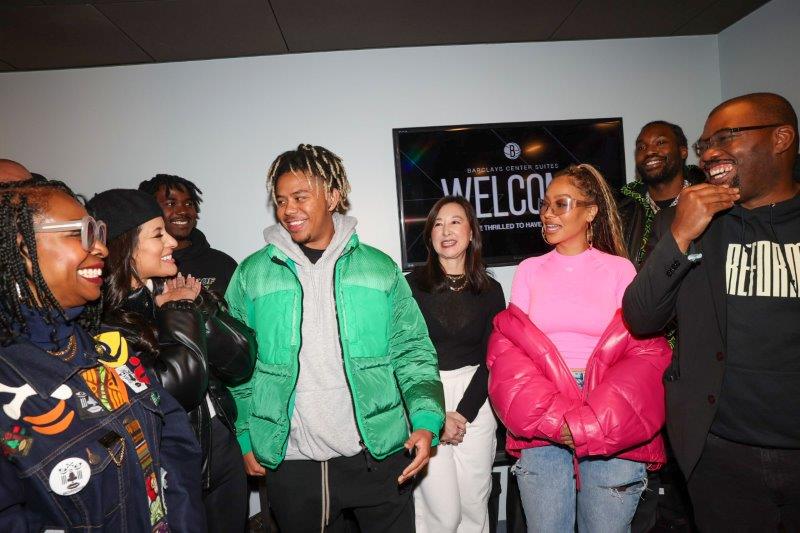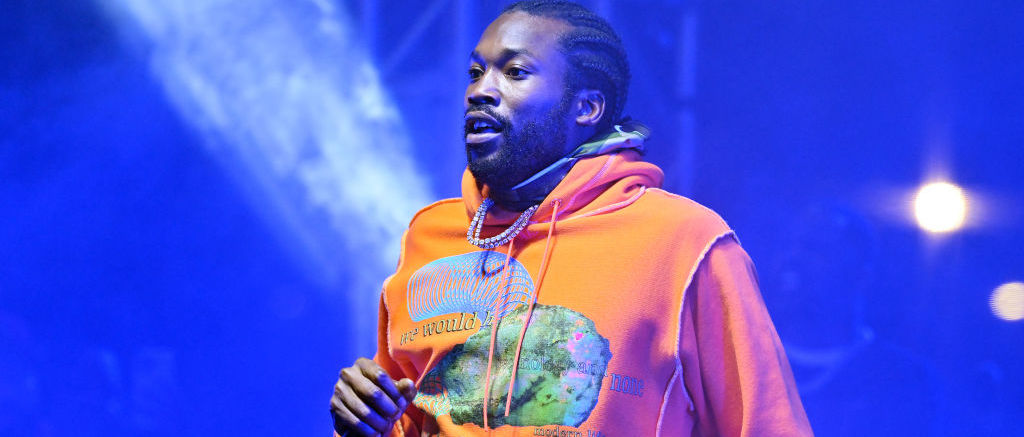It felt like an era tragically came to a close when Young Thug was arrested as part of a sweeping RICO case against YSL. At a time when a new crop of rappers, such as Gunna and Lil Baby, became bonafide hitmakers, Thug’s influence felt as palpable across the top 40 as it did in the streets. The arrest, however, curtailed Young Thug’s continued ascent as one of the most important musical figures in the 21st century while impeding the growth of his record label, a label that prosecutors argued was a gang. Thug, born Jeffery Williams, was arrested alongside 27 others in 2022 and tried in what is now considered the longest-running trial in the history of Georgia.
On Halloween, Young Thug was finally granted his freedom. After turning down the prosecutor’s offer that would’ve seen him spend at least 45 years tethered to the system–25 years in prison and 20 on probation–Young Thug’s team of attorneys put their fate in Judge Whitaker. In exchange for pleading guilty and no contest to numerous drug and firearm charges, Young Thug will have to serve 15 years on probation backloaded by 20-year sentence, per AP. Considering the severity of the allegations against Young Thug, the outcome was better than most expected.
As part of his probation, Young Thug will have to adhere to a set of conditions that some, including REFORM Alliance Chief Policy Officer Erin Haney, feel could be a trap that could lead him back to prison. Having been a public defender in California and eventually becoming a critical figure in the #FreeMeek movement, she has a firm understanding of the complexities of the probation system. If you recall, the #FreeMeek campaign gained steam over a probation violation–one that nearly had the Philadelphia-born rapper incarcerated for two to four years.
These technical violations have played a major role in mass incarceration across America, and remain a point of anxiety for those who’ve closely followed the YSL case and advocated for Young Thug’s freedom. Even a technical infraction could possibly lead someone like him to serve the backloaded 20-year sentence. For example, Young Thug is prohibited from promoting any gang activity, which sounds reasonable on paper until he releases a song under his label, YSL. Could that send him to prison? Following Young Thug’s plea deal, we caught up with Erin Haney who broke down Young Thug’s probation conditions and the complexities surrounding these conditions.
This interview has been lightly edited and condensed for clarity.
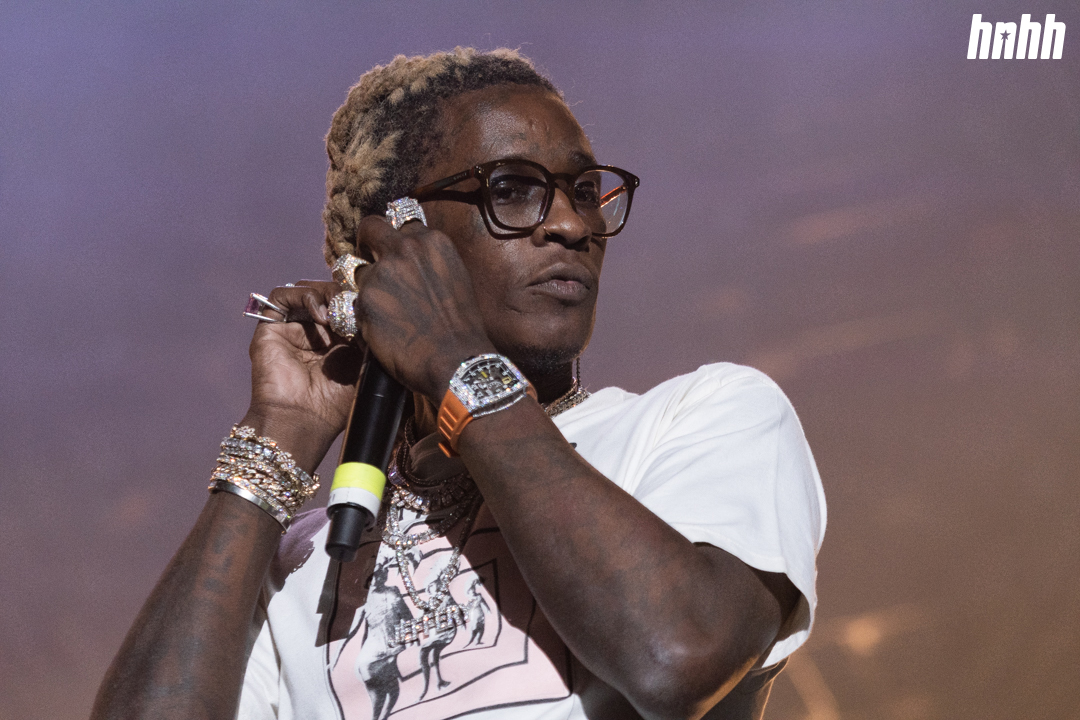
HotNewHipHop: I want to touch on Meek’s case and how it parallels Young Thug’s situation but first, I would like to know if this trial was like anything you’ve ever seen before.
Erin Haney: The trial and the plea open, no. The specifics of the trial, absolutely not. So, the trial itself and the insanity around that, some of the things that happened with sort of everyone being incarcerated, from jurors being threatened with incarceration to attorneys to judges being kicked off the case, you know, all of that. And I think most recently, right, we saw a witness with Mr. Sledge being incarcerated after testifying and being incarcerated on a probation violation at that, right? So all of that was unprecedented, but I think the plea came down to–in terms of the conditions of supervision and how important it would be to make sure that those conditions were not simply a trap back to incarceration, but actually, gave some room for Jeffery Williams to succeed, right? That concern, that trap of probation conditions, is something that isn’t just common within Georgia or nationally.
It’s actually really the basis of how REFORM was born. For us, it’s something that is incredibly close to our work, I think, and the hearts of most people who work at REFORM, since REFORM was born out of Meek Mill getting a technical violation of probation, meaning he wasn’t in trouble for breaking a law or committing a new crime, right? He was on supervision, and he was in trouble, and I think that’s a light way of putting it, but he was sentenced to two to four years in prison, not for breaking a law, but for violating a rule. You know, even as a criminal defense attorney, that’s not something that I spent a lot of time thinking about, mainly because once people are sentenced, especially in a high trial volume type office, you are often thinking about the next person who is pre-trial, who is facing their case. So you aren’t always looking at what happens to people sort of after they’re on supervision, or at least 10 years ago, you weren’t, right? And I think understanding, in Meek’s case, that that you would get two to four years not for committing a crime, but for breaking a rule. That felt unconscionable. And REFORM was born out of Meek’s insistence that, yes, while he had, you know, resources and a platform and people who fought for him, and ultimately, he was freed, that this is the same type of injustice that’s faced every single day by people all over the nation on supervision, especially in places like Georgia, right?
Anytime that you have jurisdictions or states that have really high rates of supervision and really long periods of supervision with really onerous conditions, you’re going to have these unjust and oftentimes unconscionable violations of supervision that find people behind bars again, not because they’re a risk to public safety, but because they broke a rule that was part of the guidelines of their supervision, and we have to do better than that, right? We know that’s not helping public safety or anyone, and I think, what the negotiations in Young Thug’s case broke down over initially were those conditions and ultimately, why his team praised and put their faith into the judge in crafting conditions that they felt Jeffery Williams could actually abide by.
What was your initial reaction to the plea deal? In the week leading up to that moment, there was a lot of talk about some sort of deal which ultimately went stale. Then the prosecutors wanted him to serve something like 20 to 45 years, if I’m not mistaken.
I was following along and watching it. As a nerd, that’s part of what I do for fun. But also it was incredibly interesting, educational, and unlike anything we had seen, right? We know that in trials, and, cases, especially, frankly–sometimes prosecutors who are eager to get someone that those things can go off the rails. We don’t usually see it unfold in quite this obvious of a way. You don’t usually see prosecutors admonished by the court over and over again for the type of stuff that was happening in this case.
As somebody who had been watching it, even though I wasn’t at all involved, I was, initially somewhat surprised, because he has two of the best attorneys, I think, in the country who are doing a phenomenal job for him. I think a lot of people felt like this was probably going as well as it could possibly go, given how much power the government has in these situations. As you mentioned, I heard there were plea deals. I wasn’t sure if that would happen with Jeffery Williams, especially because of how much he had insisted on his innocence. On the other hand, he’s been in the worst conditions that anyone could be in right, one of the worst jails in the nation. He’s been there for two years and just had his 33rd birthday; is experiencing his kids missing him and crying for him.
So the uncertainty of not knowing whether this would go on for months longer, or whether there would be a mistrial and he would have to start all over. I mean, I could see, I think, at that point, why there would be a plea. So that part was surprising, but I think the part that was genuinely shocking. It’s pretty unusual to plead open or plead to the sheet, or however you want to call it, especially mid-trial. So to hear that they had been negotiating with the prosecution and had come to a point where they couldn’t go any further and that they were going to put their faith in the judge by pleading open, in other words, pleading to all of the charges levied against Mr. Williams, right? As if they went all the way to the end of a jury trial and were convicted on all of the counts. That felt surprising.
I think, had he not had two of the greatest lawyers in the country, there would have been a lot of concern about why that was happening and what was going on. But knowing the incredible skill and dedication that his attorneys had, it became clear quickly, I think, that not only was this a good thing based on what Mr. Williams wanted to do, but that his lawyers had seized on the main issue that often gets missed in these cases, which is, what are the conditions of that supervision? So not just how long is it and not just how much time is hanging or backloaded over Mr. Williams’s head but what are the conditions day to day? Because those usually make the difference between sort of a trap door right back to prison, which is, you know, 25% of prison admissions right now are technical violations, right? So trap door right back to prison, or the ability to possibly succeed and go forward and potentially even thrive. It will be challenging with the conditions he has, but it’s different than it being determinative. And that’s really because of the conditions that his counsel fought for.
In terms of his conditions right now, and just the possibility of them being a little bit more difficult to comply with, especially just considering what his work is, what do you think the biggest threat out of these conditions is to his freedom?
Oh, that’s a really good question. I think there are definitely pieces of [what] you mentioned given kind of his specific situation, being a musician, being an artist. There are definitely ways in which he was targeted because of that. What was really important, I think, about the sentence and the conditions, is that many of them were individualized. I think four conditions really stand out as being some of the more onerous conditions of his supervision. Three of those four are ones that are at least as onerous as they apply to everybody else on probation, right?
There are standard conditions of probation that the judge made some exceptions for, right? So they individualize those conditions. So for example, the travel restriction. People in Georgia on probation, the hundreds of thousands of people, sadly, on probation in Georgia, they generally are subject to a blanket travel restriction, right? It’s not just that they can’t travel internationally or across state lines. They can’t even travel across county lines. Given Jeffery Williams’s career and given what he does, Judge Whitaker said on the record that they don’t want him subject to that travel restriction. Not only can he cross county and state lines, but he can also travel internationally, and should keep his passport, and he needs to. That’s the type of individualizing of a condition where that’s not by any means giving him a free pass. He’s still got a lot of conditions, but that condition, in particular, having that exception there that a lot of people don’t have, is going to make a really important difference for him. So that’s one.
I think another really big one that is going to be really difficult, even with the exception, people in Georgia who are on probation have a condition that is a prohibition against associating with “disreputable persons and places,” which is a really vague and broad, and frankly, an offensive term, but it’s been understood to mean that you can’t associate with anybody else with a criminal record. For a lot of people, that means you can’t associate with other family members. And that was clearly a really big piece of this, and so that’s an exception. He’s allowed to associate with his brother, with Mr. Kitchens are going to given contractual obligations, and then with anyone, who is, I think said necessary for lawful business. But what exactly is going to be determined as sort of the bounds of lawful business, right? That’s something that’s very, very subjective, and that’s something that’s going to be tricky. So again, that’s a place where, even with individualizing, that gives him a little bit of room, given his job, right? But it’s still going to be tough.
I think by far the the two toughest ones, right, which are really more specific to him are the “stay away from the Metro Atlanta area.” You heard his dad talking afterward, about how he took particular offense to that, since they’re from there and you know the prosecutor, [Young Thug’s dad] felt was not from there. And so for them to be able to dictate where Mr. Williams goes, felt especially offensive. That one’s going to be difficult, I think.
But the one by far that will be most difficult is the one that is almost impossible to know how it will be applied, which is the one about not being able to have any types of references to gangs, right? That’s a type of condition where, if we were on all on the same page about how we define gangs and gang activity, that might be one thing that we could agree was fair. I think what this trial showed is that we are all, including some witnesses who at various times, define things differently on the stand, prosecutors who define things differently while they were asking questions or through charging documents–we are all on different pages about what qualifies under that type of a condition. That means it’s going to be very, very difficult to predict when something like that will trigger a possible violation and when it won’t. So that. by far, I think is the most difficult condition to abide by.
FULL SENTENCING
THIS JUDGE SAW THROUGH THE STATE’S GAMES AND RULES THAT THUG IS NOT A DANGER
HE’S FREE TODAY!!!!!!! pic.twitter.com/Dr7eZdZOAW
— THUGGERDAILY ひ (@ThuggerDaily) October 31, 2024
Young Thug entered a Nolo plea for unlawful for person who occupied a criminal street gang position but he pleaded guilty to another charge related to criminal street gang activity. Considering the prosecutors have argued that YSL is a gang and not a label, how does this impact him as an artist? Even in the case of being able to communicate with Mr. Kitchens as part of contractual obligations, how is he able to release music under this label?
I think that’s the ultimate question, right? And that’s what no one has really been able to answer. So I think there are some really important aspects of the no-contest or Nolo pleas to those charges, right? To the one gang charge and the RICO charge. I think one of the things you know, we’d be remiss if we didn’t mention, that these conditions were so important in crafting the sentence that Young Thug ended up with more convictions than what he would have gotten if he had gone with the negotiated plea from the prosecution, right? The deal itself is confidential in terms of what the negotiations were. So this is just what was reported in terms of what was on the record and in the interviews.
From what we know, it sounds like the three charges that the prosecution said that they would dismiss in return for their negotiated plea, which had a ton of really onerous, restrictive conditions day-to-day, is that they would dismiss the RICO charge, one of the gang charges, and I believe the machine gun or firearms charge. So two of the charges that he pled Nolo or no contest to and one of the charges, the firearms charge, that he actually pled guilty to in front of the court, right?
It’s important to think about how critical the details of these conditions are. So much so that it was worth trading the number of convictions to get better conditions. I think it’s important to recognize that the prosecution came in and ultimately objected to him pleading even no contest, even though those charges that he pled no contest to were the two charges that they were going to dismiss. The reason why likely–again, I’m not in their head–but the reason why it’s likely that they were so adamant that they did not want him to be able to do that in front of the court when they no longer had control over the conditions that would be ordered is because, without those two, it means that he has not admitted to the underlying factual allegations, right? So the factual allegations that he would have to admit to with a guilty plea.
If you saw Mr. Sledge two weeks ago, most of the controversy there was over him having to admit to factual allegations to take his plea, and then, getting on the stand, and contrary to those factual allegations, according to the prosecutor, and ultimately the court, him then saying, “YSL is not a gang. It’s a music label. The factual allegations underlying the charges may say it’s a gang. I may have had to agree to that to plead but I don’t agree with that as I’m testifying. I need to tell the truth as I’m testifying, and it’s not a gang,” right? So what Jeffery Williams Nolo plea arguably allow him to do is put a little bit of distance between any type of factual allegation and adoption from him, that YSL is, in fact, a gang.
Will that mean that he can go on making music under a label, YSL? I mean, I think it’s really up in the air. It seems frankly, very risky, given the position prosecutors have taken on this. I think even if he dissolves YSL, and they have a different name for it, some of the questions will be, “What if you reference YSL in a song?” or “What if you play some of the prior music that he’s made that’s so popular?” Or “What if you wipe your nose in a music video?” right? We’ve gotten so overly broad in what they consider to be a sign or an indication of a gang that it really begs the question in terms of who’s going to be interpreting this. How will Jeffery Williams know how it’s going to be interpreted, and how can he make sure that he is following the guidelines so that he doesn’t end up in a situation [like] Meek was thrown in prison for two to four for a technical violation? Jeffery Williams is looking at 20, right? So if he does something or says something in a song or performs something that they believe violates this condition, that’s incredibly dangerous for him to the tune of 20 years of his freedom.
On a statistical level, what are the chances that these agreements will send him back?
I think it really gets to the point of probation and the way that it can be more or less effective, right? And the way that it can be an obstacle versus sort of a tool to get services and to get what people need in re-entry. There are studies done on this, the more conditions you place on somebody, the less likely it is that they’ll succeed on supervision, right? So that’s the first piece. So having these really strict conditions makes it more difficult, right? I think that the federal study that was done was every additional condition can reduce your likelihood of success by up to 19%. So, every single condition that courts pile on as a special condition is dangerous, and increases the risk or the likelihood that someone will violate. On top of that, the longer you’re on supervision–it’s sort of counterintuitive in some ways–but it doesn’t increase public safety. It doesn’t reduce recidivism or the likelihood of being incarcerated.
Statistically, if you have actually more than five years of supervision, it’s harmful, right? You actually see an increase in recidivism. You see an increase in the likelihood of return to incarceration, which is part of why REFORM and so many other groups, including great, great groups in Georgia, work really hard on reforms that are evidence-based, that look at the evidence-based supervision terms to ensure that conditions are individually tailored and not onerous, and that time periods aren’t lengthy.
I think that if we just talk about statistically and we think of supervision as, sadly, an incredible driver of mass incarceration and instead of a tool to support success in the community, but realistically, more of a way of tethering people to the system. This is a huge risk, right? It’s a huge challenge. The prosecution, I believe, offered something like three and a half years on reporting status. But again, from what we understand, way worse conditions would have landed him in trouble almost immediately. Under Judge Whitaker’s sentence, he’ll be reporting for double that, so seven and a half years under reporting supervision, but with conditions that hopefully are a little bit more likely to allow him to, at the very least, survive; maybe not thrive in the way that we wish he could, with his talent and with the fact that everyone seems to agree he’s not a threat to public safety, right? If the prosecution is offering him probation, by its very nature, that meant that they were okay with him being in the community. So I think you know, this sort of cracks the door open for him. He seems extremely talented and extremely determined. He has a chance to be able to make it here. Statistically, it is a huge uphill battle with that length of a sentence and that number of conditions and somebody who is, I think, you know, as recognizable as he is, right? So they’re going to be likely monitoring him quite a bit, but I think it’s possible.
The final question I have for you: how does the outcome of the trial and the probation conditions, how does this case impact his freedom of speech moving forward during this time? Does it create a scary precedent moving forward for other cases?
You know, I think any time that we are limiting what people can think and how they express themselves through creative forms of entertainment, especially in this day and age when we have social media; anytime we’re not just limiting that, but punishing it with prison cells that feels extremely dangerous, especially the added danger with supervision is, again, people aren’t being punished for actually breaking laws. So you don’t even have the threshold that you have with a new case or a trial where they have to prove, at least in theory, right, some sort of connection between lyrics or posts and an actual law that was broken–actual criminal behavior.
I personally may disagree with that anyway, but that’s at least a threshold that has to be met on supervision. No crime has to occur, right? All that has to happen is a violation of the condition, and that’s why these conditions are so important. It’s. It’s so critical that instead of sort of glossing over them, as courts normally do, that we spend a lot of time really crafting them so that they are supportive and individualized and designed to promote success in the community and public safety, as opposed to just tether someone to the system and sort of weigh them down. Because here, we don’t have to find that a crime was committed if he is expressing himself through lyrics that the court doesn’t like. Here, all they have to find is that it violates a rule that they created to go with his supervision. And that’s terrifying.
The post Is Young Thug’s Plea Deal A Trap To Send Him Back To Prison? appeared first on HotNewHipHop.







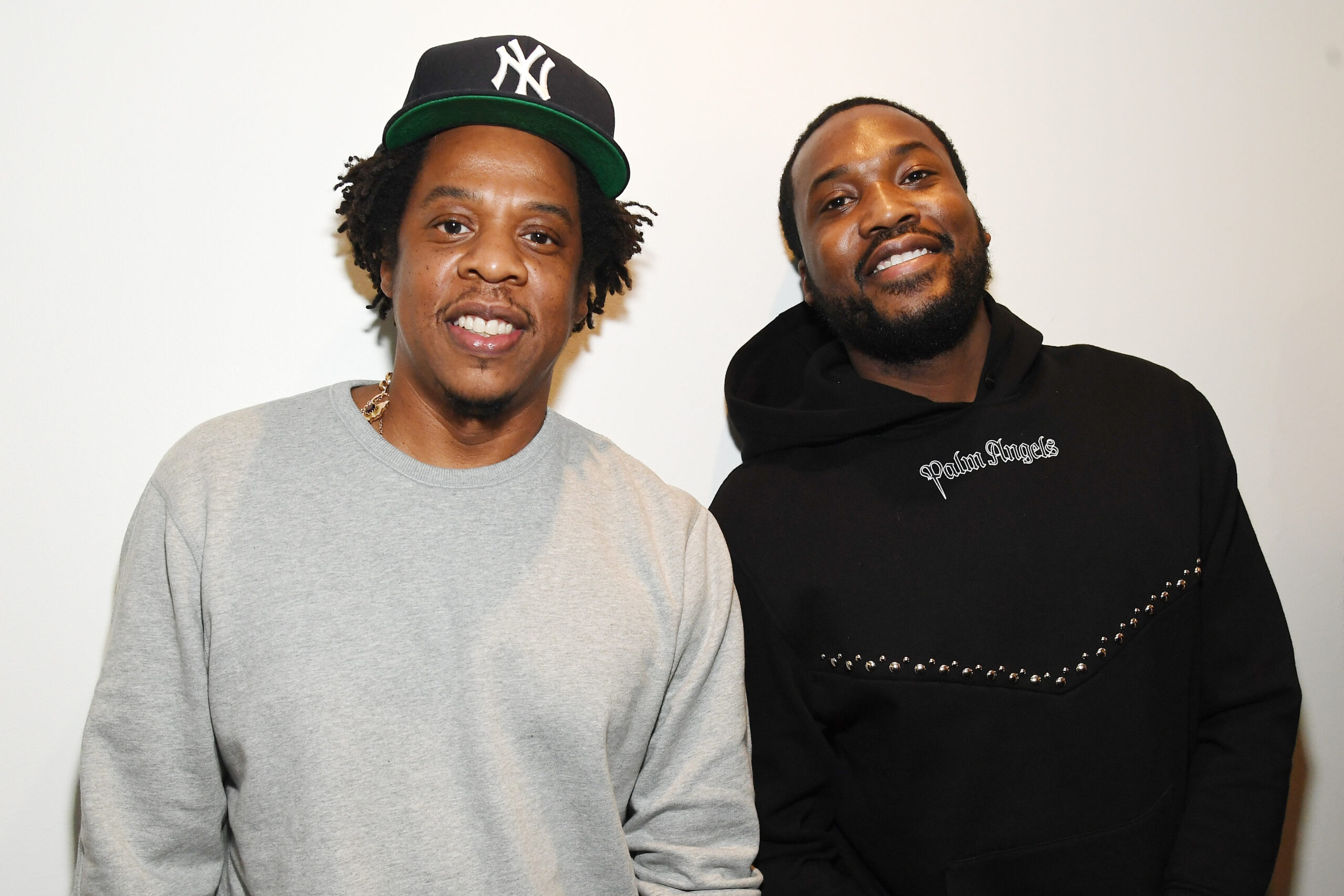 Jay Z Meek Mill REFORM United Nations Resolution Prison Hip Hop News” class=”wp-image-850653″ srcset=”https://wp.hnhh.com/wp-content/uploads/2024/10/REFORM-Alliance-Resolution-scaled.jpg 2560w, https://wp.hnhh.com/wp-content/uploads/2024/10/REFORM-Alliance-Resolution-300×200.jpg 300w, https://wp.hnhh.com/wp-content/uploads/2024/10/REFORM-Alliance-Resolution-768×512.jpg 768w, https://wp.hnhh.com/wp-content/uploads/2024/10/REFORM-Alliance-Resolution-1536×1024.jpg 1536w, https://wp.hnhh.com/wp-content/uploads/2024/10/REFORM-Alliance-Resolution-2048×1366.jpg 2048w” sizes=”(max-width: 2560px) 100vw, 2560px” />
Jay Z Meek Mill REFORM United Nations Resolution Prison Hip Hop News” class=”wp-image-850653″ srcset=”https://wp.hnhh.com/wp-content/uploads/2024/10/REFORM-Alliance-Resolution-scaled.jpg 2560w, https://wp.hnhh.com/wp-content/uploads/2024/10/REFORM-Alliance-Resolution-300×200.jpg 300w, https://wp.hnhh.com/wp-content/uploads/2024/10/REFORM-Alliance-Resolution-768×512.jpg 768w, https://wp.hnhh.com/wp-content/uploads/2024/10/REFORM-Alliance-Resolution-1536×1024.jpg 1536w, https://wp.hnhh.com/wp-content/uploads/2024/10/REFORM-Alliance-Resolution-2048×1366.jpg 2048w” sizes=”(max-width: 2560px) 100vw, 2560px” />

